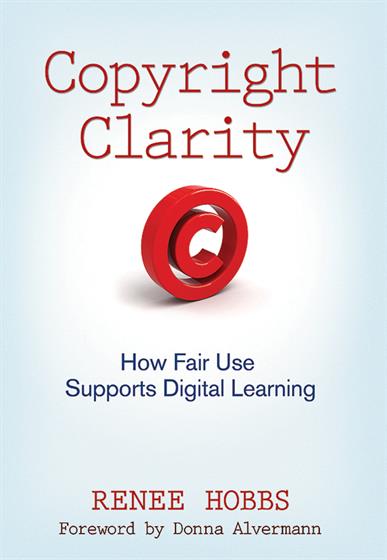Hands-on, Practical Guidance for Educators
From math,
literacy, equity, multilingual learners, and SEL, to assessment, school counseling,
and education leadership, our books are research-based and authored by experts
on topics most relevant to what educators are facing today.

Copyright Clarity
Foreword by Donna Alvermann
Finally, a book that dispels the confusion around the use of copyrighted materials in the classroom!
Today, educational resources available online often remain untapped because of confusion over copyright laws. Hobbs dispels common myths and clarifies simple principles for applying copyright law and the doctrine of fair use to 21st-century teaching and learning. Complete with a ready-to-go staff development workshop, this book explores:
- What is permissible in the classroom
- Fair use of digital materials such as images, movies, and Internet elements found on sites such as Google and YouTube
- Trends in intellectual property law and copyright practices
- Classroom projects using copyrighted materials
- Grade Level: K-12
- ISBN: 9781412981590
- Published By: Corwin
- Year: 2010
- Page Count: 144
- Publication date: June 04, 2010


